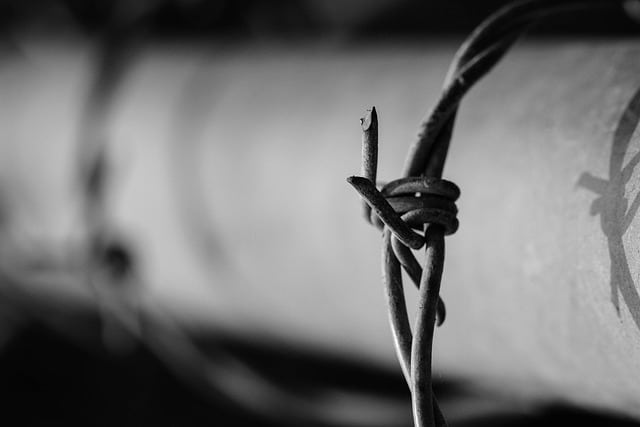How Do I Find Someone in Juvenile Detention
Michelle Wilson - April 2, 2023

According to recent online data, one in four delinquency cases in juvenile court involves some form of detention. If you have a loved one currently spending time in a juvenile detention centre, you might find yourself overcome with fear and overwhelm as you attempt to navigate this experience. Not only are unknown outcomes scary, but locating these ones can also be daunting, especially if you are unfamiliar with the legal system. However, with the right resources, it is possible.
The following content will discuss the background of juvenile detention and some of the steps to help you find someone there.
Table of Contents
Juvenile Detention, Explained
Juvenile detention is a form of short-term confinement that authorities use after arresting a youth, but before the court determines if they are innocent.
Therefore, the court will only consider pretrial detention appropriate if they believe the youth poses a risk of committing further crimes or fleeing during the court proceedings. While some young people are placed in detention centers after the court hears their case, this is generally only done while waiting for a disposition or placement.
How Is The Juvenile Justice System Different From The Adult Criminal Justice System?
The adult criminal justice system differs from the juvenile justice system in that the latter operates with a different set of rules and procedures tailored to address young people’s unique needs and circumstances. Law enforcement officers take a youth arrested for a crime into custody and bring them to a juvenile detention center for intake, collecting the youth’s basic information and conducting an interview.
Within a few days, the court holds a detention hearing to determine whether to release or detain the youth until their next court appearance. If the court finds the youth guilty in the adjudication hearing, they will hold a disposition hearing to determine an appropriate sentence or rehabilitation plan. The youth the authorities arrest for a crime in the juvenile justice system is later called a “juvenile delinquent.”
Why Are Juveniles Delinquents Detained?
Authorities use juvenile detention when they consider a youth a threat to themselves or others or when there is a risk of them fleeing or failing to appear in court. It is also used if a youth has a history of not appearing at their court dates, has committed a serious crime, or is deemed a flight risk. Remember that juvenile detention’s intention is not to punish young people but rather to ensure their and the community’s safety while they await court proceedings.
Depending on the type of check being performed and the jurisdiction in which the detention occurred, time spent in a juvenile detention center will not always appear on a background check. Authorities may seal or expunge juvenile records once the individual reaches a certain age or completes a certain time without further offenses. However, there are instances where juvenile records are not sealed or expunged, particularly if the court charges an individual with a serious offense. Therefore, certain background checks, such as those performed for a security clearance or certain types of employment, may uncover juvenile records.
What Happens At a Juvenile Detention Centre
The daily routine in juvenile detention centers may vary by facility, but school-age youth are required to attend school. Juveniles can exercise, participate in recreational activities, and practice their religion. The U.S. Constitution and federal laws guarantee the rights of juveniles in detention, including access to education, medical and mental health care, due process, communication with family, counsel and the courts, and safe and humane treatment.
The government has also issued a comprehensive set of facility standards in response to documented failures to house juveniles safely and humanely.
Steps to Find Someone In Juvenile Detention
With this background in mind, it is time to begin your search. Consider a few steps to help you begin.
Gather Information
The first step in finding someone in juvenile detention is to gather as much information as possible about the individual, including their name and age. You will also need to know the location of the juvenile detention center where authorities are holding your loved one and any case number associated with their detention.
Contact the Detention Center
Once you have gathered the necessary information, the next step is to contact the detention center. You can usually find the detention center’s phone number or website online. When contacting the center, be prepared to provide the individual’s name and other identifying information. They may also ask for additional information, such as the case number or the name of the court that ordered the detention.
Contact a Lawyer or Legal Aid Organization
The next step is to contact a lawyer or legal aid organization for assistance. A lawyer can help you understand the legalities around the case and access additional information about the individual’s detention. To prepare for a meeting with a lawyer, bring any relevant documents and information about the individual’s detention.
Review Online Databases
Several online databases can help you locate someone in juvenile detention. These databases can provide information about the individual’s detention, including their location and case status.
Contact Law Enforcement or Government Officials
Depending on the nature of your issue, you may need to contact local, state, or federal authorities. For example, if you have been a victim of a crime, you may need to contact your local police department. If you are dealing with a civil dispute, you may need to contact the appropriate court. If you are unsure which agency or department to contact, you can do some research online or seek the advice of a legal professional.
Once you have identified the correct agency or department, you can find the contact information you need. Most agencies and departments have websites with contact information, including phone numbers and email addresses. You can also visit their offices in person to speak with someone directly.
Are There Alternatives to Juvenile Detention Effective?
Experts have found alternatives to juvenile detention to reduce youth confinement rates while maintaining public safety. According to public data, jurisdictions participating in the Juvenile Detention Alternatives Initiative (JDAI) have reduced admissions to secure detention by over 50%. The impact is that authorities are detaining fewer youth in secure facilities, allowing them to remain in their communities where they can access support and resources to address their needs.
Moreover, studies have shown that alternative detention programs have positive outcomes for youth. In another public data release, experts found youth who participated in community-based programs were more likely to complete their sentences, avoid future delinquency, and have better long-term outcomes than incarcerated youth. These findings suggest that alternatives to detention are not only effective in reducing youth confinement rates, but they can also positively impact youth outcomes.
Starting Your Search
Finding someone in juvenile detention requires effort and patience, but it is possible. It is important to start by identifying the facility where the person is being held and then follow the proper procedures to contact the facility. Many successful searchers have found that keeping open lines of communication with the facility staff can also help make the process smoother and ensure that the detained person receives appropriate support and care.
Related Posts
Recent Posts
Popular Posts
Sorry. No data so far.







